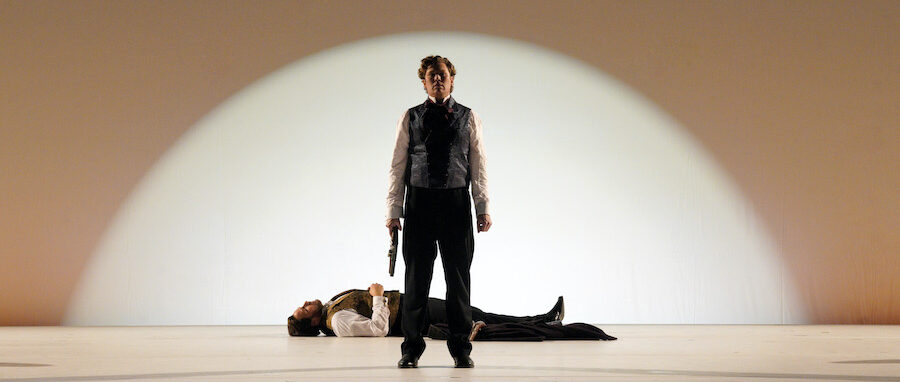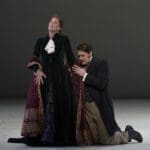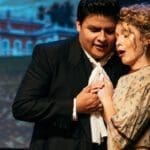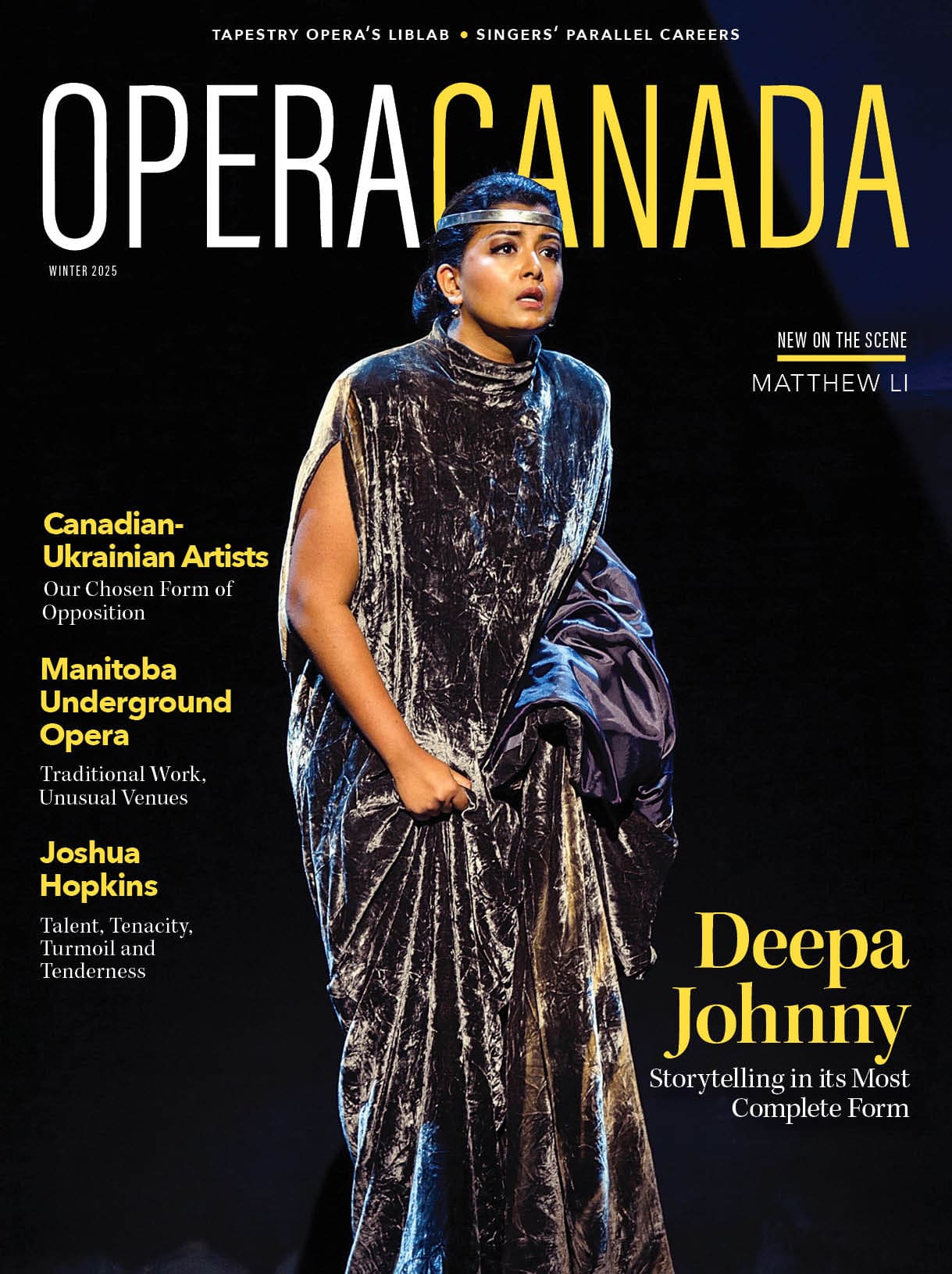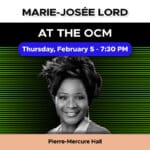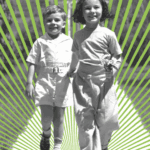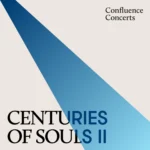When Tchaikovsky based his lushly Romantic, quite personal, opera on Alexander Pushkin‘s then already classic novel in verse, he bravely cut both against the grain of its iconic author’s scintillating, ironic manner (inspired by the English poet Lord Byron) and against the then current demand for mythic and nationalistic new operas.
Tchaikovsky’s subtitle was “lyrical scenes,” not “opera,” and he granted the premier to students at the Moscow Conservatory because he felt that they could catch the simplicity and intimacy of the work. Yet the sound of his score is large and lush—for an orchestra of about sixty—and his vocal lines demand not only seriously schooled singers, but also extraordinary emotional projection. He was inspired by European composers, especially Georges Bizet, who had set precedents for operas with intense, intimately psychological stories.
Eugene Onegin often thrives in theaters of modest size and as a festival opera. After all, the oddly paired lovers, Tatyana and Onegin still are in their 20s as in the end they forever part. That said, the score is of such beauty that large houses quite often stage it, sometimes with super-star casts. Overwhelming as Tatyana, for instance, was the great Mirella Freni in San Francisco’s 1986 production. She then was 51!
The story and its anti-hero remain odd even upon familiarity. A young, melancholy sophisticate, arrives straight from Saint Petersburg high society as heir to his uncle’s country estate. Lensky, a local gentleman poet befriends this Onegin and brings him to the modestly ample Larina property to meet Olga, his vivacious fiancé, and her reserved, literary sister, Tatyana. This girl is smitten, and spends the night writing Onegin an impassioned letter declaring everlasting love.
This very long letter aria anchors the entire opera musically with motifs that recur strongly, especially at the end when a parallel letter from Onegin to Tatyana mirrors hers. Onegin responds in person with a cool sermon, saying that he is not for marrying, though he likes her, and that they would be miserable after a short time. At the country ball for her birthday, the bored Onegin flirtingly monopolizes Olga and carelessly pushes the rash Lensky into a challenge.
The haunting duel scene, with its gorgeous farewell aria for Lenksy, ends with Onegin’s despair at having killed his friend. He returns after years of travel and attends a grand aristocratic ball given by his much older cousin, the Prince Gremin. Married recently even at his age, Gremin extols the beauty of love. The now majestic Princess Tatyana Gremin bows to Onegin and shortly retires. The stunned Onegin, now madly in love, forces her to receive him the next morning. She admits to loving him still but demands that he depart and insists upon her honorable marriage. The ever egoistic Onegin despairs.
Tatyana’s fresh young love drives the opera, with its belated reflection in the still self-obsessed Onegin. Evgenia Muraveva‘s slender instrument could not carry the weight. She is charming, and, a fine actress, resisting with authority in last scene, but her edgy, largely unvaried tone left Tatyana’s profound emotion on the page.
The handsome Canadian Gordon Bintner has appeared as Onegin in the Canadian Opera Company‘s theatre seating about 2,000—many fewer than San Francisco. Like Murveva, he might show better in a smaller venue, but, here, his dry, monochromatic voice lacked resonance and sometimes did not reach even seats near the stage. His young looks and manner fit the role, along with his good acting.
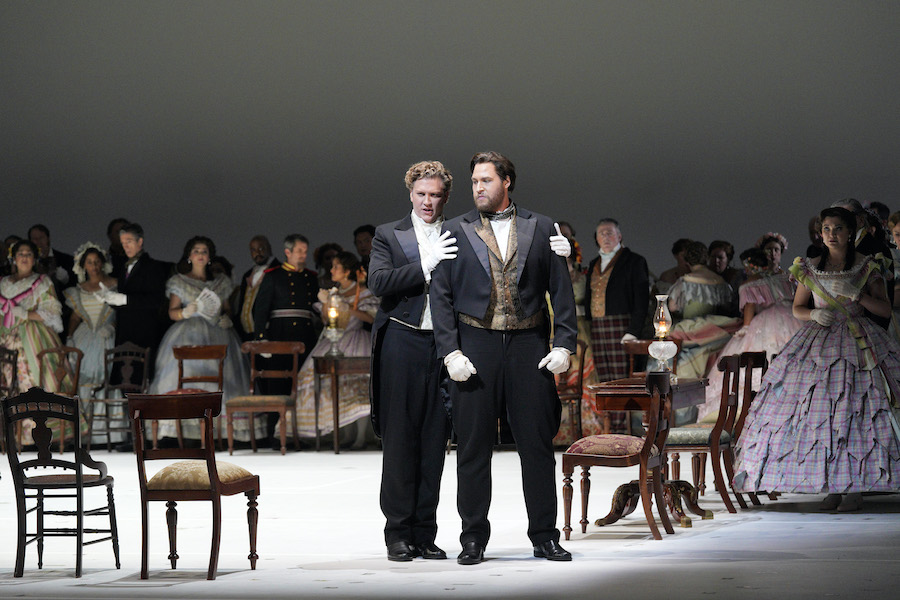
Gordon Bintner as Onegin and Evan LeRoy Johnson as Lensky in Tchaikovsky’s “Eugene Onegin.” Photo Ⓒ Cory Weaver/San Francisco Opera
Evan LeRoy Johnson, as Lensky, emerged as the star of the day, gaining the largest final ovation of any singer. His big, secure tenor yet remained supple and expressive in the ravishing aria before his death by duel.
Aigul Akhmetshina‘s vivacious Olga lit up the stage. Ferruccio Furlanetto as Prince Gremin showed one and all what it means to convey emotion in singing; at curtain, the company recognized his forty-three year service with its highest honor, the San Francisco Opera Medal.
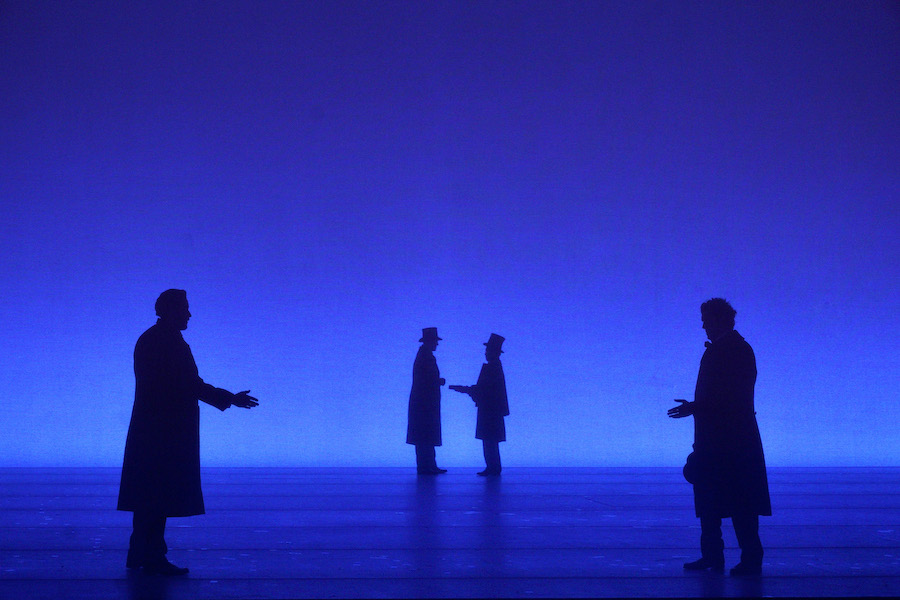
The Act II duel scene from Tchaikovsky’s “Eugene Onegin.” Photo Ⓒ Cory Weaver/San Francisco Opera
Canadian Robert Carsen’s staging of Eugene Onegin, in settings and costumes by Canadian Michael Levine, with lusciously expressive lighting by Christine Binder, started at the Metropolitan Opera some 25 years ago. Few opera productions live as long and travel as widely as this one has. Light on scenery (just a crisp-cornered cyclorama), rich in lovely costumes, and heavy on chairs, it must be light on transport.
But the vision, if at moments austere, even cold, is mainly very beautiful. Mountains of romantic autumn leaves—falling and fallen—dominate the first act. The haunting duel scene is all in dark silhouette against misty blue. Here, shockingly, as Lenksy is carried off on a stretcher, a tightly drilled bevy of valets methodically dress Onegin for the white-tie ball to follow, with the opening dance music of that act appropriated as accompaniment. Countless exquisite details abound, from complex rituals with cut crystal glassware, to precise management of overcoats at the duel, to the over-sized clothes Onegin wears for his sermon to Tatyana—making him look like a dressed up boy.
Vassilis Christopoulos, a debut conductor, exploited the fine orchestra’s splendid sound, aiming more at blending and lush texture than at individuated instrumental lines.
Opera Canada depends on the generous contributions of its supporters to bring readers outstanding, in-depth coverage of opera in Canada and beyond. Please consider subscribing or donating today.


